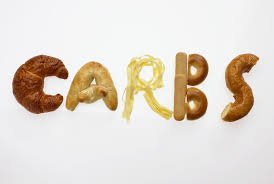Connect With Someone
One of the key factors to happiness is our personal relationships. According to the findings from the Harvard Study of Adult Development, strong relationships are one of the most important predictors of a healthy and happy life. Taking time in the beginning of this new year to focus on your current relationships or pursue a new connection with someone could be one of the most powerful ways to boost your happiness in these colder, darker days of winter. This could be calling someone you haven’t spoken with in a while to re-connect, texting a friend to make plans to get together, finding a group to join that does an activity you enjoy, scheduling a date night with your partner, or even asking a stranger how their day is going.
Stabilize Your Blood Sugar
I attended a Metabolic Health Symposium a few months ago. When most people think of metabolic health, they may think of diabetes. Diabetes is one of the most downstream effects of metabolic dysregulation. But other, earlier symptoms include anxiety, depression, fatigue after eating, and weight gain, among many others. Making choices to keep your blood sugar stable can greatly affect your mood, energy, weight, and all aspects of your health. It is really the fundamental key to your body functioning optimally. In order to keep blood sugar stable, choose whole foods and avoid sugar, sugary beverages, processed foods, and refined carbohydrates, which spike your blood sugar and stress your insulin. A very worthwhile podcast regarding metabolic health and how our food culture is making us sick can be found here. In addition, ask your doctor to check your hemoglobin A1c (HbA1c) level- this will tell you your average blood sugar for the past three months and whether you might be pre-diabetic or even diabetic. This information can help you to know if it’s time to make some changes to your diet and lifestyle.
Eat a Whole Foods Breakfast
One of the best first steps to help stabilize blood sugar (and mood) is to eat your first meal of the day with whole foods that include protein and fat. This means avoiding the temptation to eat a quick, sugary breakfast like cereal or instant oatmeal (or even granola, which generally contains quite a bit of sugar). Eggs are a great choice for breakfast, especially with some cooked vegetables in a scramble or omelette. Notice if your energy or mood feels more stable after this kind of breakfast.
Swap Out Your White Rice for Brown Rice
Do you know what white rice is? It’s what you get when you refine (mill and polish) whole-grain (brown or other dark colored) rice to remove the outer bran and germ layers, leaving only the starchy white endosperm of the grain. The bran layer contains most of the grain’s fiber and the germ contains most of the grain’s nutrients, including B vitamins, minerals (such as iron), and phytochemicals (including antioxidants). Sometimes white rice is “enriched”, or has B vitamins and iron added back in, but at only a fraction of the original amount and not as bioavailable to your body. So, for a practical tip you can implement now- and to improve your fiber and nutrient intake and help your blood sugar- choose brown, black, purple, red, or wild rice.
Find What Kind of Exercise You Enjoy
January is the time-honored season of deciding you’re going to get your life together and finally do that certain exercise you think you should do. But what should you actually be doing? Forcing yourself to do certain exercise or workouts can lead to frustration and disappointment. So instead, think about what you actually enjoy doing and start there. Walking the dog, going for a bike ride, taking a dance class, asking a friend to try pickleball with you, trying a free online yoga class…there are lots of ways to start. See if you can make time for what you enjoy, and build on that. We are much more likely to find time for things that make us feel good and bring a smile to our faces!
Try a Mindful Meal
Most of us tend to eat while doing something else- scrolling on our phone, doing work, watching TV, or even driving. What if we just stopped long enough to actually pay attention to our meal? Mindful eating asks us to put aside our distractions and focus on the act of eating. If you can, sit down with your food on a plate. Take a a deep breath and look at your meal and notice what it looks like and smells like. Maybe you can appreciate all those who were involved in getting this meal to your plate. Then take a single bite. Set your fork down and take time to chew your bite and notice the flavors, texture, and temperature of your food. Taking time to eat mindfully helps us to activate the enzymes that break down our food, chew the food for better digestion, notice how much we are eating and how hungry or full we are. Hopefully it also helps us appreciate and enjoy our meal. We can also then pay attention to how we feel after the meal. Mindful eating can be a first step in a new relationship with your food.
Prioritize Your Sleep
Getting enough quality sleep is essential for optimal health. In fact, I believe it forms the platform for our health, from which we can then work on choosing nourishing foods, moving and strengthening our bodies, enjoying time with friends and family or making new connections, and focusing our energies on things that are important and things we enjoy. For those of us who have difficulty sleeping (like I do), we know how miraculous a night of great sleep can makes us feel. For those with chronic sleep deprivation, you may have lived so long in this state that you don’t recognize the effects of insufficient sleep, and you may think you function fine on just 5 hours a night. According to Matthew Walker, a professor of neuroscience and psychology at UC Berkeley and director of its Sleep and Neuroimaging Lab (and author of Why We Sleep, 2017), sleep loss is linked to Alzheimer’s, anxiety, depression, bipolar, suicide, stroke, chronic pain, cancer, diabetes, heart attacks, infertility, weight gain, obesity, and immune deficiency. Adults 45 and older who sleep fewer than six hours per night are 200% more likely to have a heart attack or stroke during their lifetime, as opposed to those sleeping 7-8 hours per night. Those getting less than seven hours of sleep per night on a regular basis and considered chronically sleep restricted. So, I always encourage my clients to prioritize sleep and make a goal to work on trying to get at least seven hours of sleep each night.
Ditch This Pantry Item
For decades we have been told to avoid fat, that fat makes us fat. This is not true. Fat is one of the three essential macronutrients necessary for powering our bodies. The key is choosing the right fats for the right usage and avoiding harmful fats. The harmful fats to avoid are those oils found in plastic containers at the grocery store- namely canola oil, corn oil, vegetable oil, soybean oil, sunflower oil, safflower oil, as well as margarine and buttery spreads. These oils are highly processed and are already damaged (oxidized) by heat and solvents used in the processing before they are put in the container, rendering them rancid and stripped of nutrients. Then they are deodorized to mask the rancid smell. They are then packaged in transparent, plastic containers which allow them to be further oxidized via light and heat. These hydrogenated or partially hydrogenated industrial seed oils are also found in most processed foods, fast foods, and often in restaurant food.
Once you throw these out, what do you use? If you are cooking, use fats that are solid at room temperature, which means they don’t degrade the same way under heat. These fats include coconut oil, butter, ghee, lard (pork fat), tallow (beef fat), duck fat, chicken fat, or lamb fat (for animal fats, look for pastured, well-raised animals). Use unsaturated oils for non-heated purposes, like dressings. These include cold-pressed and extra virgin olive oil, avocado oil, sesame oil, macadamia nut oil, and walnut oil.
Be Carb Selective, Not Carb Phobic
There’s a lot of anti-carb sentiment out there, and with some good reason. Carbohydrates are what spike our blood sugar and stress our insulin, which over time leads to metabolic dysfunction and disease. In the shorter term, if we are constantly spiking our blood sugar, we can notice mood issues like anxiety, depression, difficulty focusing, fatigue after eating, and weight gain, among others. The key to selecting carbs is to look for whole food forms of carbs and focus on fiber. Fiber is important for digestive health, feeding the microbiome, and stabilizing blood sugar. Eating fiber-rich foods also has been shown to reduce rates of heart disease, stroke, and type 2 diabetes. Carbs like vegetables, whole fruits, whole grains, legumes, nuts and seeds, and less starchy carbs like sweet potatoes are all great choices to obtain fiber and many micronutrients. Aim for approximately 25-30 grams of fiber/day. The carbs to avoid are sugary drinks (including fruit juice, which is stripped of all fiber); sugar; processed carbs like flour, bread, pasta; and processed foods with added sugar.









